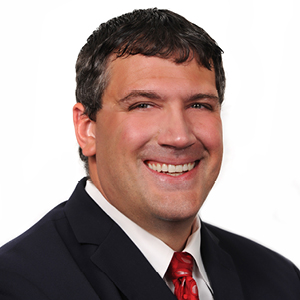Ohio Lawmakers Need to Put More Debt Relief Options on the Table
Oct 20, 2020During the pandemic, The Buckeye Institute has proposed a number of commonsense policy solutions that have helped keep businesses open, helped keep Ohioans healthy, and have helped families put food on the table. Unfortunately, during these trying times, crushing debt has added to the struggles of thousands of Ohioans.
While a variety of government programs have helped to keep Ohioans afloat, many of them—temporary unemployment compensation, rental assistance, and loan forbearance—have ended or will end soon. The result? Ohioans already struggling with debt will sink deeper into a sea of red ink as the bills keep coming and the penalties keep piling up.
Unfortunately, some competitors want to limit the options available to Ohioans by needlessly over-regulating the services debt settlement companies can offer. Rather than allow debt settlement companies to work on a client’s behalf to negotiate a lump-sum payment that is less than the total amount owed, competitors have exploited a flawed interpretation of a 2004 Ohio Supreme Court opinion to categorize the work of debt settlement companies as an illegal act called an “unauthorized practice of law” or UPL. This pernicious argument about UPL and Ohio’s outdated debt adjusting law have made it increasingly difficult for Ohioans struggling with debt to get the help they need.
Recently, though, the Ohio Supreme Court clarified that debt settlement businesses are not engaged in the practice of law, and a UPL violation only applies to specific acts, such as drafting legal documents or using legal defenses. As former Ohio Attorney General Betty Montgomery explained, this case clarifies that debt settlement companies won’t run afoul of the law in Ohio by acting in their normal capacity of “presenting offers, relaying counter offers, and requiring clients to draw their own conclusions.”
Another good sign for Ohioans struggling with debt is the legislation pending in the Ohio General Assembly that would update the state’s debt adjusting law. Not only did the Ohio Supreme Court’s recent decision eliminate the only serious concern with the proposal, but the policies in Senate Bill 112 further clarify that as long as debt settlement companies are in compliance with the federal law regulating their work, they will not be violating Ohio law. This clarification—along with the court’s decision—will give Ohioans struggling with debt more options, which should be a priority for Ohio lawmakers.
Using a debt settlement company might not be the right choice for everyone. But just as many Ohioans are trying to put food on the table, policymakers should put more options on the table for people who need debt relief, and they should avoid the flawed arguments that limit the services available to Ohioans who need help getting out of debt.
Greg R. Lawson is a research fellow at The Buckeye Institute.

